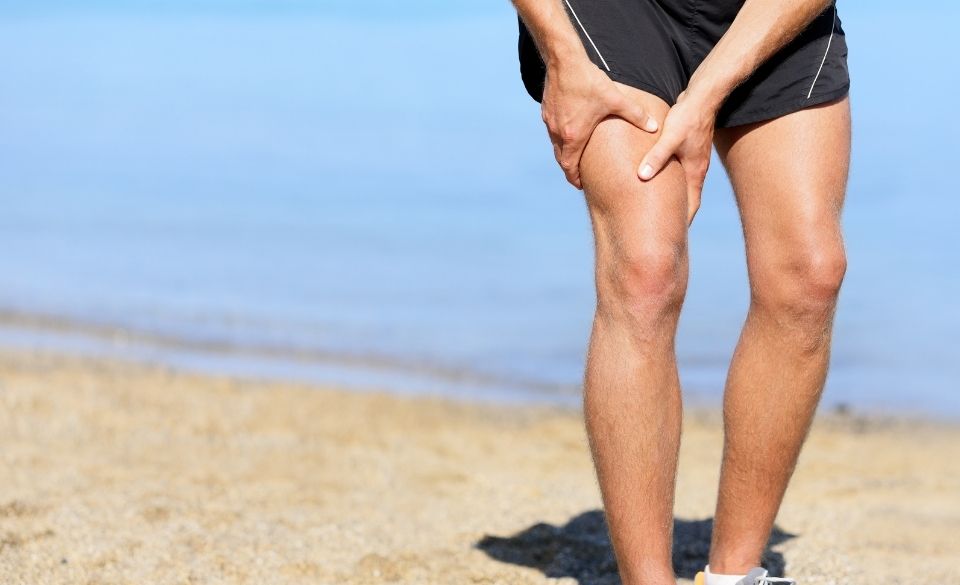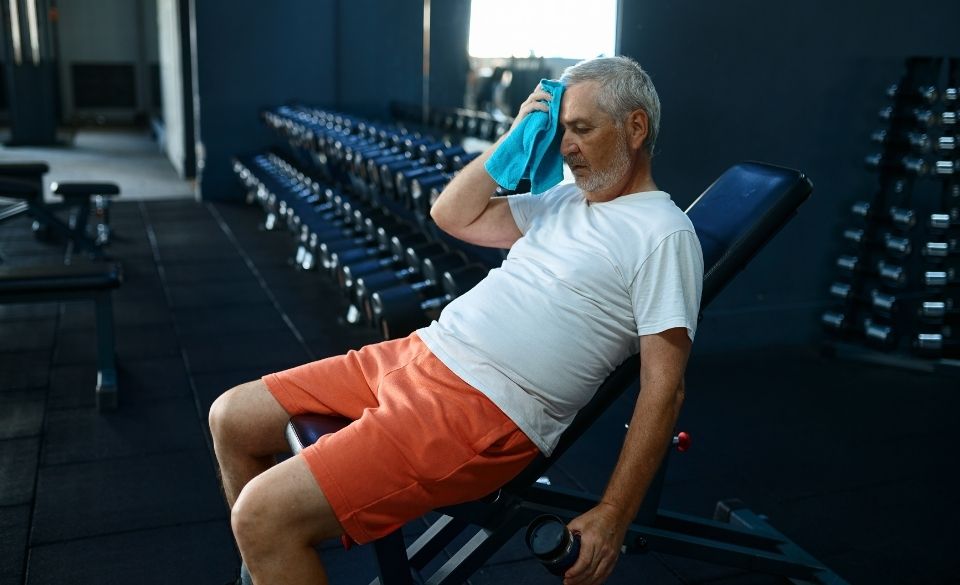
Muscle Recovery Time – What You Should Know! Updated 2022
Page Contents
Regardless of the exercise, you do or the amount you lift, muscle recovery time plays a huge part in an athlete’s training. Muscles that take a long time to recover can prevent the athlete from doing key workouts and even prevent them from doing their training.
The optimal time for muscle recovery can vary between people. That means there is no specific time on how long muscles take to recover. The form of exercise, the person’s fitness, strength, genetics, and recovery protocols can all affect how long it takes muscles to recover after a workout. Because of this, there is no set time on how long your muscles may take to recover after a workout.
However, there are some general guidelines on muscle recovery time, which we dive into in this article. We also give you some tips that can help speed up muscle recovery time.
Muscle Recovery Time – How Long Does It Take?
Allowing the muscles to recover after strenuous training is an important part of the puzzle if you are training regularly. It can help you stay injury-free, improve your training and prevent overtraining. However, many people push through the recovery process as they don’t know how long the muscles need to recover.
When you work out, you break down muscle fibers, and if you don’t get enough rest or nutrients, the body can’t recover and get stronger.
Some stiffness and light soreness is normal after strenuous exercise. However, if you are experiencing this more often than not, you are not allowing the muscles to recover properly between workouts.
Muscles need time to recover, and a general recommendation is that the muscle recovery time after strenuous exercise is between 48 and 72 hours. However, this largely depends on your body composition, diet, training intensity, and strength.
The more intense the workout is, the more muscle damage the athlete will experience. That is why you often don’t feel soreness, fatigue, or pain in the muscles after light exercise.
Even though general recommendations say that muscle recovery time should take between 48 and 72 hours this is not always the case. Some people (if well trained) may be faster at recovering than others, while a weight lifter may experience a quicker recovery time than a runner. A lot depends on the sport you do and the intensity you train at.
However, if you have delayed onset muscle soreness, 72 hours should be enough time for the muscles to recover. Just make sure you rest during this time, or do very light aerobic exercise. Otherwise, you may find that your muscle recovery time will increase past these 72 hours and prevent you from training correctly.
How To Speed Up Muscle Recovery?
Luckily, if you know how to speed up muscle recovery, you can rapidly shorten the timeframe in which your muscles need to recover. Some basic tips to speed up muscle recovery include:
– Getting enough nutrients in your diet
– Eating protein and carbohydrates directly after training
– Light massage after exercise
– Elevating muscles throughout the day
– Drink lots of water
– Get enough sleep
– Foam roll and stretching
– Take a regular rest day
The easiest way to speed up muscle recovery time is by implementing a rest day into your training. By doing so, you will help prevent fatigue and muscle soreness from building up over time. It can allow you time to spend a day foam rolling or getting a massage which aids your muscle recovery.
Another easy way is to try to eat directly after your workout or within the hour. This is a good way to help refuel energy the body has used during exercise and provide nutrients to help repair the microdamage that exercise has caused to the muscles.

Muscle Recovery Time By Age?
Unfortunately, as you get older, muscle recovery time will take longer than someone younger. This is because the regenerative abilities of the muscles deteriorate as you get older.
Even if you follow some of the tips above, you will still find your ability to recover will be slower than in your younger years. That is why, as you get older, it is important to add more recovery days into your training program. This helps prevent a build-up of fatigue and will help speed up recovery between workouts.
Once you reach the age of 50, you will experience a slower recovery time between workouts. That means your muscle recovery time may extend past the 48-72 time frame. However, this will depend a lot on the intensity, exercise, and fitness of the individual.
Causes Of Poor Muscle Recovery?
There are many causes of poor muscle recovery. These can include:
– Poor protein intake after exercise
– Lack of carbohydrates during and after exercise
– Not enough recovery days planned in your training
– Dehydration
– Lack of nutrition during long bouts of exercise (running, cycling)
– Rapid increase in training volume
For most people, poor recovery comes down to a lack of recovery days in their training, too many hard workouts in a row, and a lack of nutrients following exercise.
Other factors like poor nutrition during exercise can cause slow muscle recovery. However, this is more common in athletes that do cycling, running, rowing, or any other endurance sport for that matter. The lack of nutrition during training often affects their muscle recovery time after training and maybe a reason why they experience constantly delayed onset muscle soreness.
If you are not an endurance athlete, there might be a reason why your muscles feel sore, tired, fatigued, and heavy. One reason, it may be caused by chronic dehydration. If you don’t hydrate correctly during exercise or even after, it may cause an imbalance in your electrolytes, which will prevent the muscles from recovering properly. If this is the case, make sure you increase the amount of electrolytes in your drink, both during and after exercise. This includes sodium, potassium, magnesium, chloride, and others.



